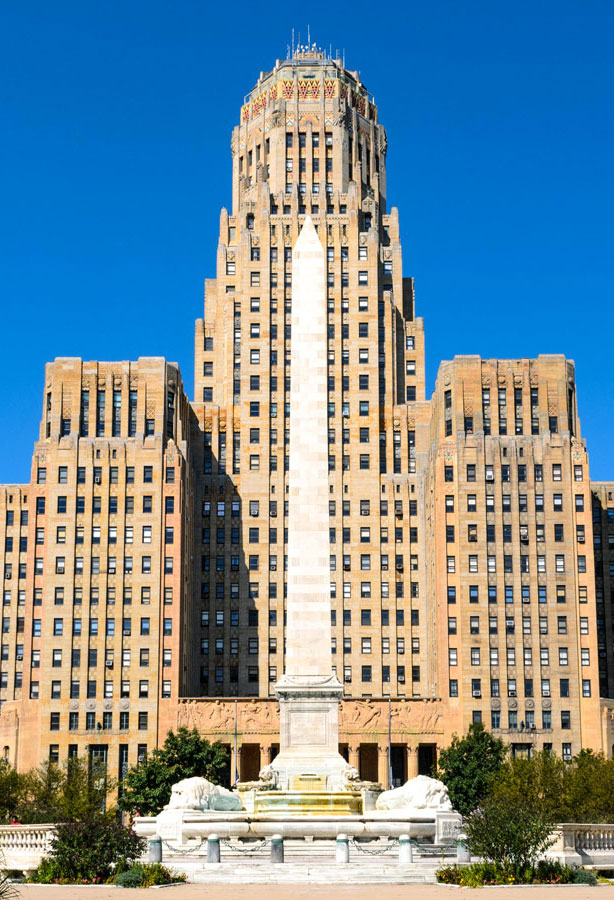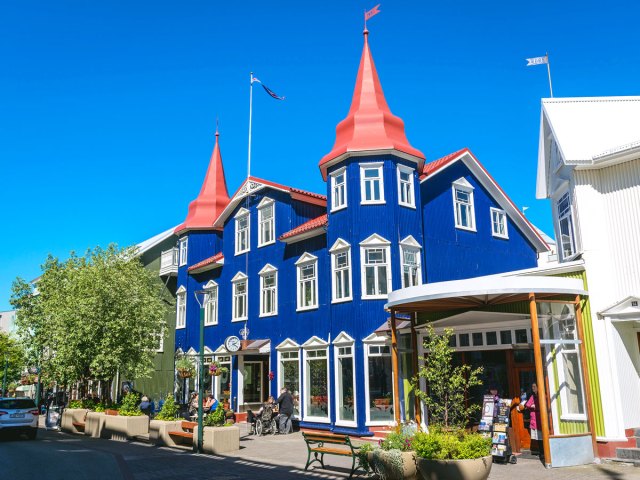They say you can’t fight city hall, but whether or not that is true, you can at least visit it. Showcasing history, leadership, and architectural design, these municipal buildings embody the spirits of the cities they serve. Best of all, they’re completely open and free for the public to tour. To witness local government in action, check out our picks for eight of the coolest city halls to visit in the U.S.
Buffalo City Hall – New York
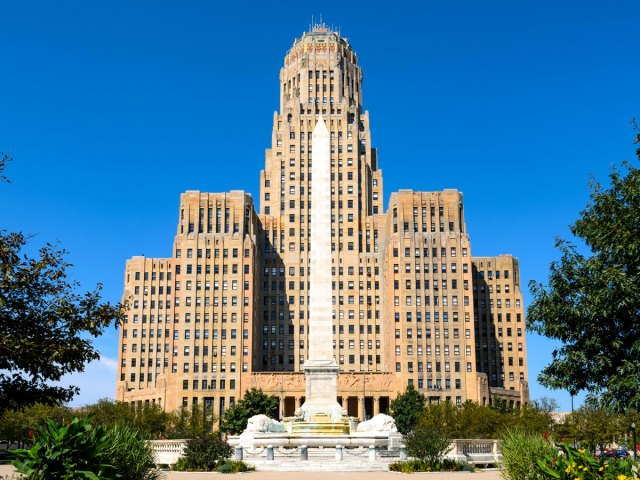
Regarded as an Art Deco masterpiece, Buffalo City Hall was completed in 1931 to the tune of $6.9 million (the equivalent of over $100 million today). As one of the most expensive city halls of its time, the 32-story limestone structure has long been a fixture of the Buffalo skyline. The building’s main entrance features a frieze that depicts Buffalo’s history, while the lobby is home to a painted fresco representing peace between the U.S. and Canada. Don’t miss the observation deck on the 25th floor, which provides expansive views of the city below.
Dallas City Hall – Texas
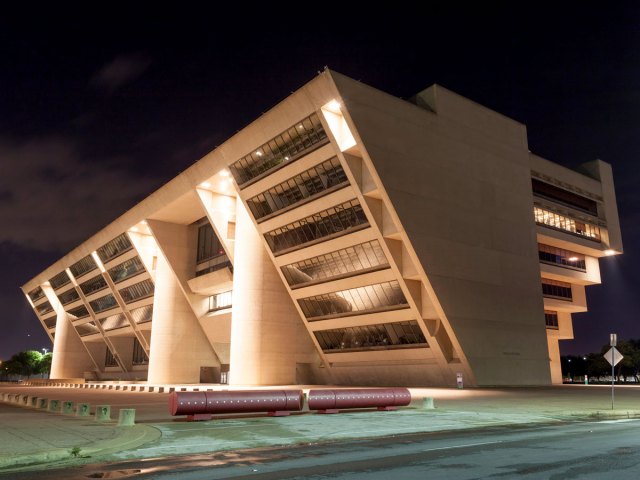
The impetus behind the current iteration of Dallas City Hall was a tragic one. After the assassination of President John F. Kennedy in Dallas in 1963, the city was pressed to revitalize its image. With the help of world-renowned architect I.M. Pei, the city unveiled the building in 1977. The result — a converted concrete pyramid in the Brutalist style — was somewhat controversial, but the building’s unique design wasn’t without purpose. With dramatic angles that provide much-needed shade under the hot Texas sun, the building’s austere exterior is lightened by the playful, abstract sculptures in the outdoor reflective pool.
San Francisco City Hall – California
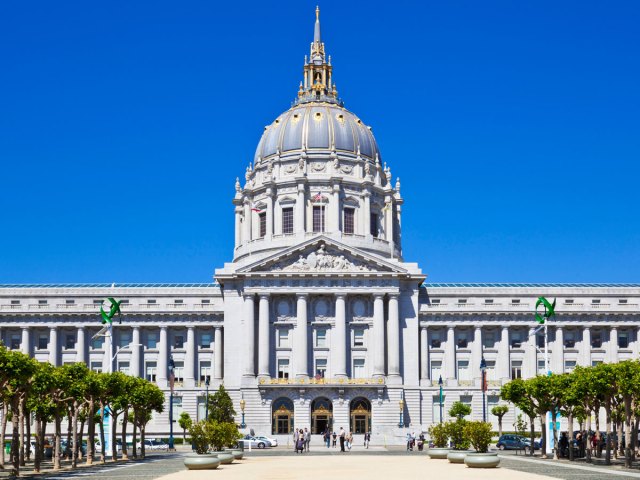
San Francisco’s City Hall was built in 1912 after the infamous 1906 earthquake destroyed the city’s former municipal building. For the new version, San Francisco held a design contest and chose a winning proposal submitted by architect Arthur Brown Jr., who had studied in Paris. As a result, the design was heavily influenced by the French Renaissance, featuring a gilded dome inspired by the Dôme des Invalides in Paris and an expansive portico with Doric columns. Today, the building is considered an architectural masterpiece and a historic city landmark, open to free docent tours every Friday.
New York City Hall – New York
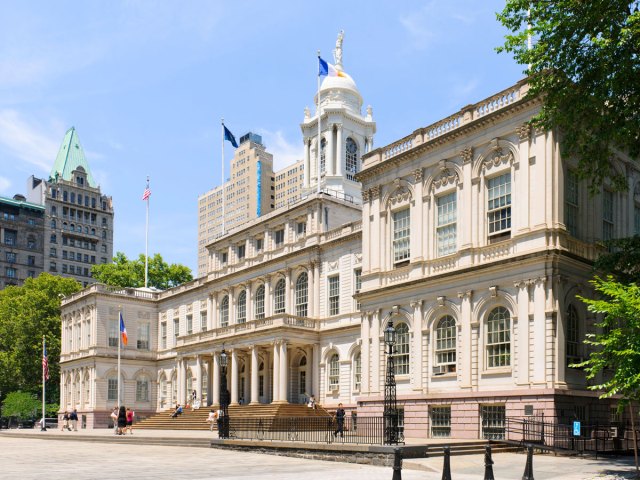
Constructed during the early 19th century, New York City Hall is the oldest in the country still used for government functions. Although plans for the municipal building date back to 1776, the Revolutionary War and its aftermath stalled the project for 27 years. After nine years of construction, the building officially opened as the seat of the city’s government in 1812, reflecting an amalgamation of French Renaissance and American-Georgian architectural styles. Famous for its grand marble staircase, the building’s massive rotunda was notably where Abraham Lincoln was laid in state for public viewing after his assassination in 1865.
San Jose City Hall – California
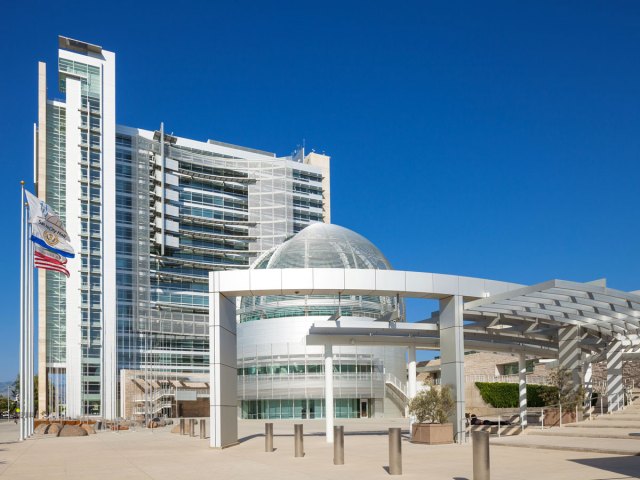
One of the more recent city halls on this list, San Jose City Hall was completed in 2005 at a cost of $343 million, making it the most expensive city hall in the country. Designed by architect Richard Meier, the building’s high price tag led to public outcry, while also being reflective of the immense wealth in Silicon Valley. Spanning seven city blocks, the building’s main feature is its glass-domed entry, a modern take on the traditional rotundas typically found on historic buildings. The 10-story rotunda is illuminated nightly with various colored lights and hosts public and private events for the city.
Milwaukee City Hall – Wisconsin
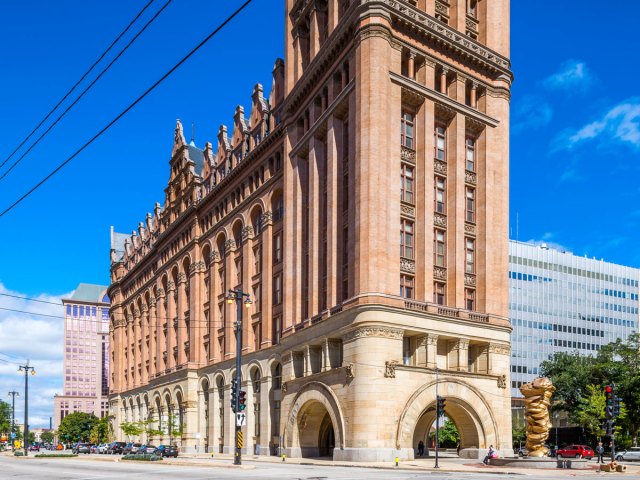
It took $1 million and 8 million bricks to complete Milwaukee City Hall in 1895, resulting in one of the city’s most renowned architectural landmarks. Constructed in the Flemish Renaissance style — an architectural trend from the turn of the century — the building’s design features include elaborate gables, arched dormers, and a steep roofline. Climbing to 300 feet, the building had a brief tenure as the tallest in the country. Although that’s no longer the case, its current claim to fame remains the massive clock tower. The tower’s 22,500-pound bell was made from melted copper and tin reclaimed from firehouses and churches around the city.
Los Angeles City Hall – California
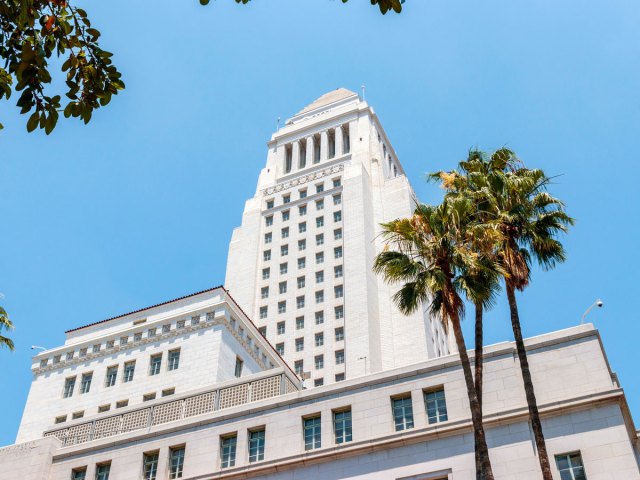
Completed in 1928 during the Art Deco architectural craze that swept the nation, Los Angeles City Hall was the city’s tallest structure at the time it was built. Although it was surpassed in height by Union Bank Plaza in 1969, it’s still considered a historic city landmark, emblazoned on postcards, official documents, and city seals. Rising 32 stories, the building is best known for its open-air observatory on the 27th floor — free to the public — in addition to its high ceilings and dramatic chandeliers. One floor down from the observatory is an art gallery featuring the work of local artists, many of whom partake in the city’s community art programs.
Austin City Hall – Texas
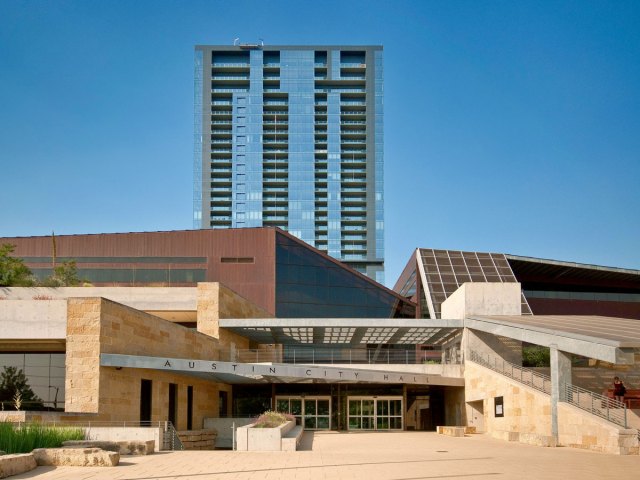
Before Austin City Hall was completed in 2004, the city council had no official home, choosing instead to convene in a rental property within city limits. Realizing an official city hall was necessary, Austin built this modern, airy, and thoughtfully designed building. Notable features include the “armadillo tail,” an exterior 49-foot copper spike recognizable on the city skyline, and the “protest window,” which gives lawmakers a direct view of demonstrators outside the building. The limestone walls and terraced design are meant to emulate the Texan terrain, and the building’s minimal energy use has earned it LEED gold status certification.
More from our network
Daily Passport is part of Optimism, which publishes content that uplifts, informs, and inspires.






